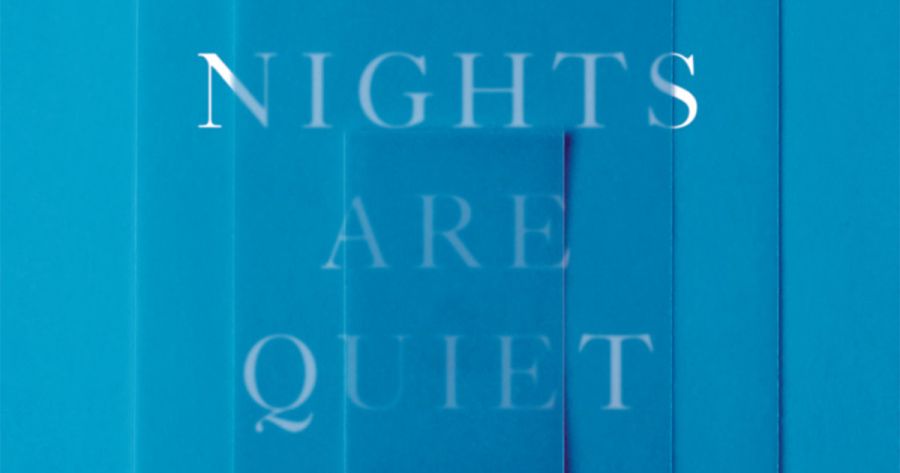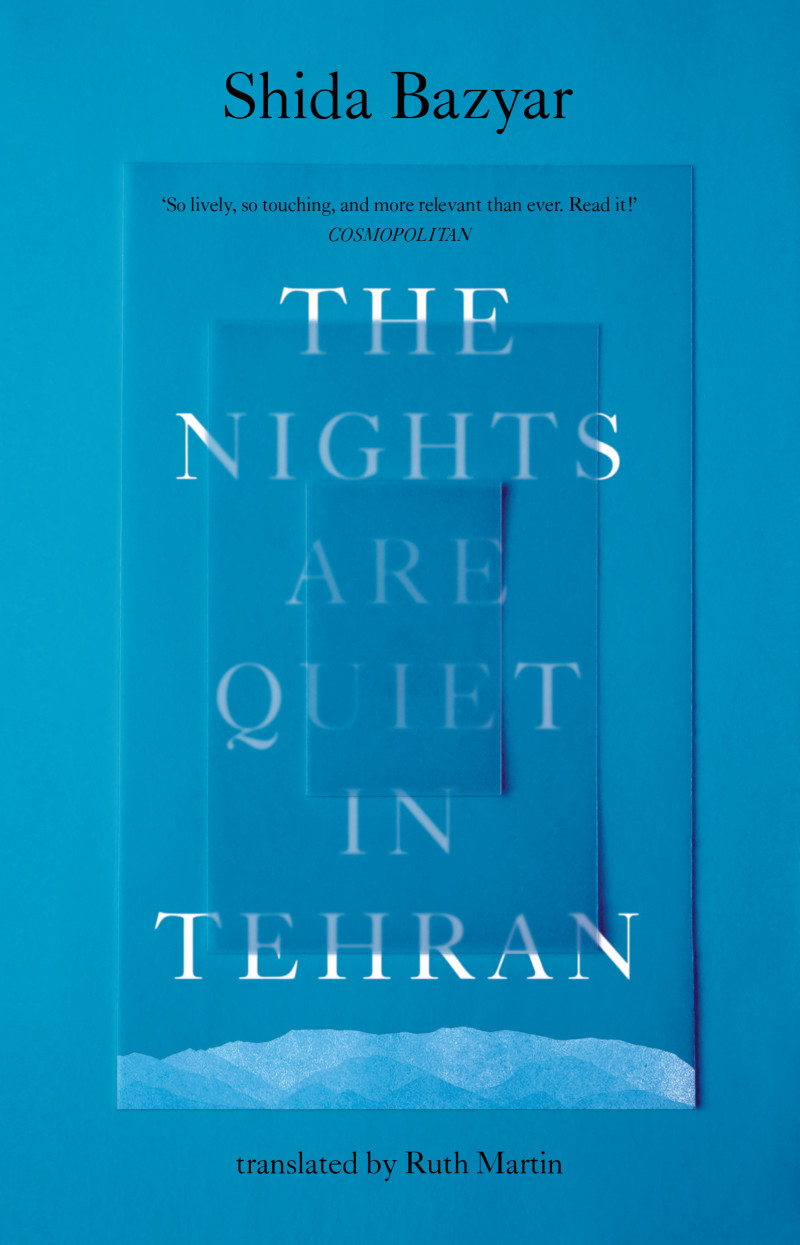
- Free Article: No
- Contents Category: Fiction
- Review Article: Yes
- Article Title: Timely, timeless
- Article Subtitle: Intergenerational Iranian loss
- Online Only: No
- Custom Highlight Text:
It would diminish this novel to describe it as ‘timely’. ‘Timeless’ is nearer the truth. The risk of a catastrophic breaking out involving Iran is a symptom of decades of tragedy, which novelist Shida Bazyar has conveyed here with a rare balance of vivid social realism and intimate introspection. The results are masterful.
- Book 1 Title: The Nights Are Quiet in Tehran
- Book 1 Biblio: Scribe, $29.99 pb, 266 pp
- Book 1 Cover Small (400 x 600):

- Book 1 Cover (800 x 1200):

- Book 1 Readings Link: https://www.readings.com.au/product/9781761381416/the-nights-are-quiet-in-tehran--shida-bazyar--2025--9781761381416#rac:jokjjzr6ly9m
Behzad and Laleh speak from the streets of Tehran, Behzad the father in the heat and heartbreak of 1979 when the Shah was overthrown but Ayatollah Khomeini’s clerics took over, Laleh his teenage daughter who experiences the sinister tension of Khomeini’s regime during a family visit in 1999. Nahid, Mo, and Tara speak from West Germany, then from the Federal Republic, where they fixate on Iran’s crises as reported in the news while German reunification passes in a flash. The drama lies in the pangs of loss for ideals and a way of life, in private passions for things forbidden in public, and in caring about intractable problems.
There is only so much that each narrator can recognise and disclose. In an effort to appear brave or courteous or nonchalant, each leaves unspoken the real effect Iran is having on them. For instance, while visiting Tehran, just as she is discovering her body’s possibilities and asserting her independence, Laleh resents having to wear the veil, and is unnerved by the leers, groping, and flirting it conspicuously fails to prevent (‘I’m probably the only woman in this country who hides her body and yet is more visible than she’s ever been in her life’). Yet the affection of aunts and uncles inspires a longing that Laleh cannot articulate. Only later do we learn that she becomes a rather conformist soul, absorbed in middle-class family life.
Such truths emerge from the characters’ tender and subtle observations of each other, or from emblematic events that find tortuously altered meanings for new generations. Behzad and Mo, thirty years apart, are obsessed with demonstrations jamming Tehran’s streets, but their experiences of these events are irreconcilable. In 1979, at risk of being shot or abducted while marching among hundreds of thousands of demonstrators, Behzad feels himself blending into a collective will: ‘I raised my arm, and my arm was [my comrade’s] arm, arms everywhere around us … no questions anymore, no questions anywhere, all around us nothing but the answer we had prophesied for so long.’ In 2009, Mo follows the Tehran Spring demonstrations against a rigged election in the virtual realm, surrounded by indulged faux-radical German friends. No risk there. Only news footage, satirical music videos, blogs, social media – the source of Mo’s family’s pain is now a spectacle for opinion-makers, ‘horny for a sensational story’. Mo is attuned to the injustice unfolding in Tehran but chafes at his non-involvement. In a poignant reversal of his father’s ecstasy at blending into the crowd, Mo laments, ‘I’d like to switch the voices off, the confusion of voices, the cloud of voices. Isolated parts of speech forcing their way into my ears, men’s voices becoming women’s voices, artificial laughter.’ The gulf implied here is immense: between father and son, political climates, social bonds, forms of access to reality. The common wish to set Iran free is stretched painfully thin.
The novel teems with such echoes, crosscurrents, and conscience-pricking details. It is Bazyar’s achievement to handle such complexity elegantly and with a light touch. Since the novel is essentially a series of dramatic monologues in which moral stakes become clear by virtue of perspective, voice is everything. Bazyar lives in Germany and writes in German, but in the hands of translator Ruth Martin this novel might as well have been written originally in English; the prose is so natural, transparent, and tactfully weighted with feeling. It is a delight to recognise each narrator as a distinct personality.
As sympathetic presences, the narrators become persuasive witnesses of each chapter’s new time and setting. One problem they misperceive is the limiting effect of their own absolutism. Contact with Iranians from different classes or with different visions for the country unsettles them. Nahid finds rich Iranian exiles repellent because their extravagance reminds her of the Shah, but she longs for their company because they also remind her of home. And when a woman unashamedly waves the Shah’s flag at a rally in Germany, the shock at enduring support for the old oppressor heightens Mo’s confusion. It is left to Tara, the little-sister-turned-professional-activist, to face the task of seeing Iran whole.
This novel is not a study of the reasons for Iran’s decades of oppression. There is a mountain of political commentary exploring that question. (For scrutiny of the Iranian will to power, I recommend the work of historian Michael Axworthy.) To my mind, Shida Bazyar has achieved something more important. She shows us what it is to feel the loss of the Iranian homeland’s soul and to hope for its recovery. The story invites our sympathy by clothing intergenerational politics in the familiar pains and daydreams of growing up. I cannot imagine anyone conceiving of this lifeworld more beautifully or inviting us into it with more charm and tenderness.


Comments powered by CComment